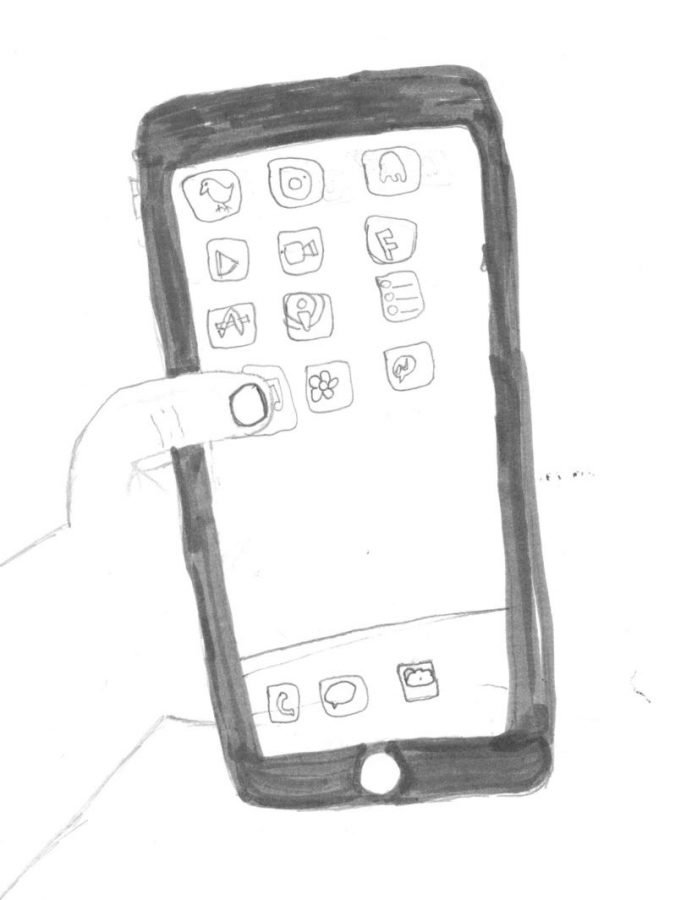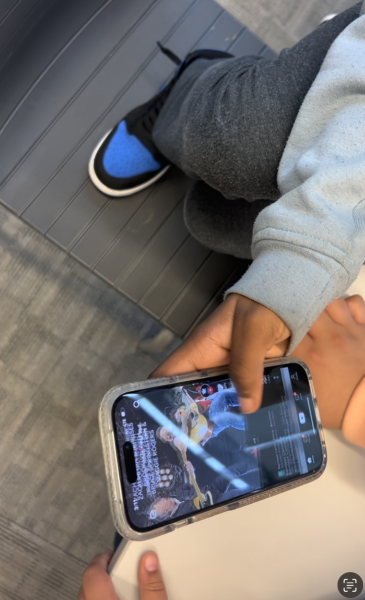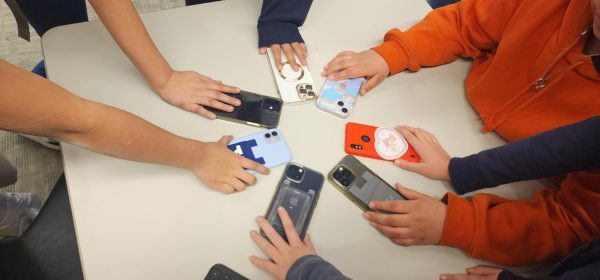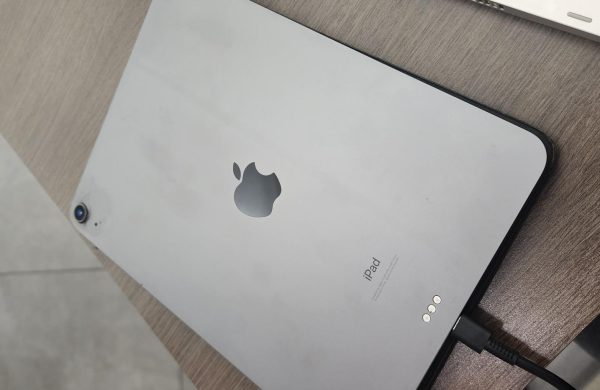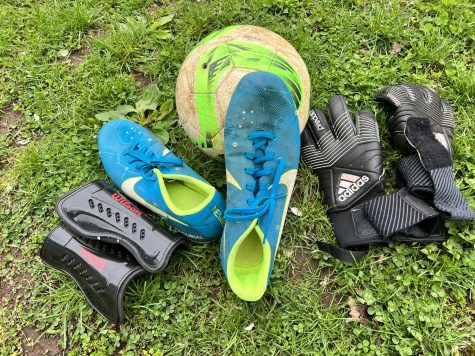Should Break Time = Phone Time?
Should students be allowed to use phones during recess? Is it old-fashioned for teachers to ban any phone use in class? And should teachers be able to use their phones at school?
Cell phones are almost everywhere, but we still haven’t figured out how much of a break we should have from using them at school. Not everyone agrees on what the rules should be.
According to the East Rock Record Spring 2020 Survey, a very high number of students —79 percent — said they should be able to use their mobile devices during recess.
Many teachers disagree. They views recess as a time of physical activity and social relationship building. Several said that cell phone use would keep that from happening. Aside from recess however, teachers seem divided on the issue of cellphone use in classrooms.
Angela Maiocco, a 4th grade teacher at East Rock Community & Cultural Magnet School said that allowing technology during recess will result in “24 kids sitting on the bench looking down.”
She also does not believe students can use phones productively in 4th grade. Students “can’t be on TikTok and listen in class simultaneously,” she said. Ms. Maiocco also believes that schools should have policies against teachers using their phones.
“Teachers are not supposed to be walking down the hall with phone, especially if it’s not for educational purposes,” she said.
But sixth grade teacher Amy Binkowski does not think there should be policies about teacher phone use. Does she use hers in class? “I’m just as guilty as everyone else using it,” she said.
Letting students use cell phones just once is “opening the floodgates.”
In Ms. Binkowski’s room you can find students on their phones listening to music to better focus on their work and students scrolling leisurely on their phones after they finish work.
Fifth grader Isaiah Howell agrees with Ms. Binkowski. “Students should be able to use their phones so I can listen to YNW Melly,” he said, adding that the music “helps me concentrate.”
Ms. Binkowski views technology as an useful reward for good behavior. “When there is free time, I let kids use their phones,” she said. “It’s taken advantage of.”
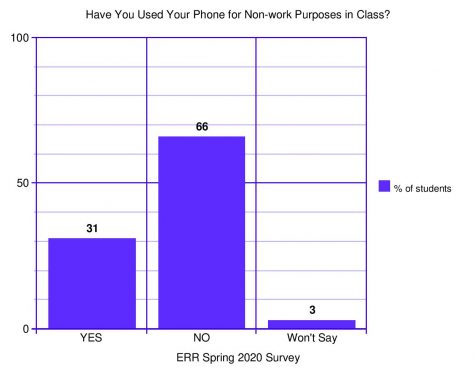
She said the decision to allow phone use happened without having a chance to think it through. Ms. Binkowski recalled that the first time she let students use their phones she agreed without giving it much thought. Now, she said, “there’s no turning back.”
Her policy is that good behavior earns her students twenty minutes of cellphone use. Interestingly, Ms. Binkowski said that next year she doesn’t plan to allow phone use in class.
Both teachers said that technology, specifically cellphones, can both hurt and help a classroom.
Teachers often use cell phones as timers. They use them to input student grades. And to quickly communicate with parents.
And because technology has a role in learning, a total ban feels old-fashioned, they said. But as Ms. Maiocco found, letting students use cell phones just once is “opening the floodgates.”
Can students use their cell phones for learning and not get distracted? That could be a problem. The East Rock Record survey found that 31 percent of students said they use phones during class for things other than schoolwork.
The debate over cell phone use in school does not have an easy answer. Some people say that school should be a break from the device because students spend so much time at home on their phones. Too much screen time worries Monica Abbott, a social emotional learning coach for New Haven Public Schools.
She shared her personal experience of allowing her children to have too much screen time. During winter and summer breaks, Ms. Abbott loosened technology restrictions. Ms. Abbott noticed her children’s moods altered as her kids became “visibly more cranky, didn’t communicate their needs, and their sleep patterns worsened.”
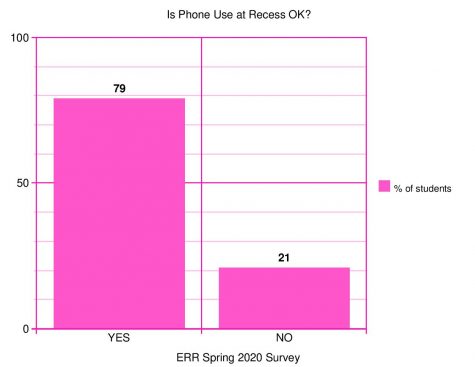
Student phone use at home is mostly determined by how strict parent rules are. That can vary a lot among students at East Rock School who report very different uses because of what is allowed at home.
Omar Dweck, a 7th grader who primarily uses his phone to play games and watch videos, estimated that he uses his device two to three hours during weekdays and five to six hours during the weekend. Sixth grader Nayleen Rodriguez said her mom only allows her to play Candy Crush on her mother’s phone half an hour each day.
Norah Matz, a 4th grader, doesn’t own a phone but explained that she’s content with her Chromebook. For students like Ms. Matz, school phone policies may not be very relevant.
What is the right answer? We don’t know yet. There are downsides to too much phone use. But phones can help in learning and let teachers stay connected with loved ones and parents.
Leslie DePriest, assistant principal at East Rock School, does not believe there should be a policy for teacher cell phone use at school. “Teachers are role models and they know that,” she said.
More broadly, she said, technology in education is a “gray zone” with boundaries that need to be tested and set up in the coming years.
Edited by Michelle Fang.


